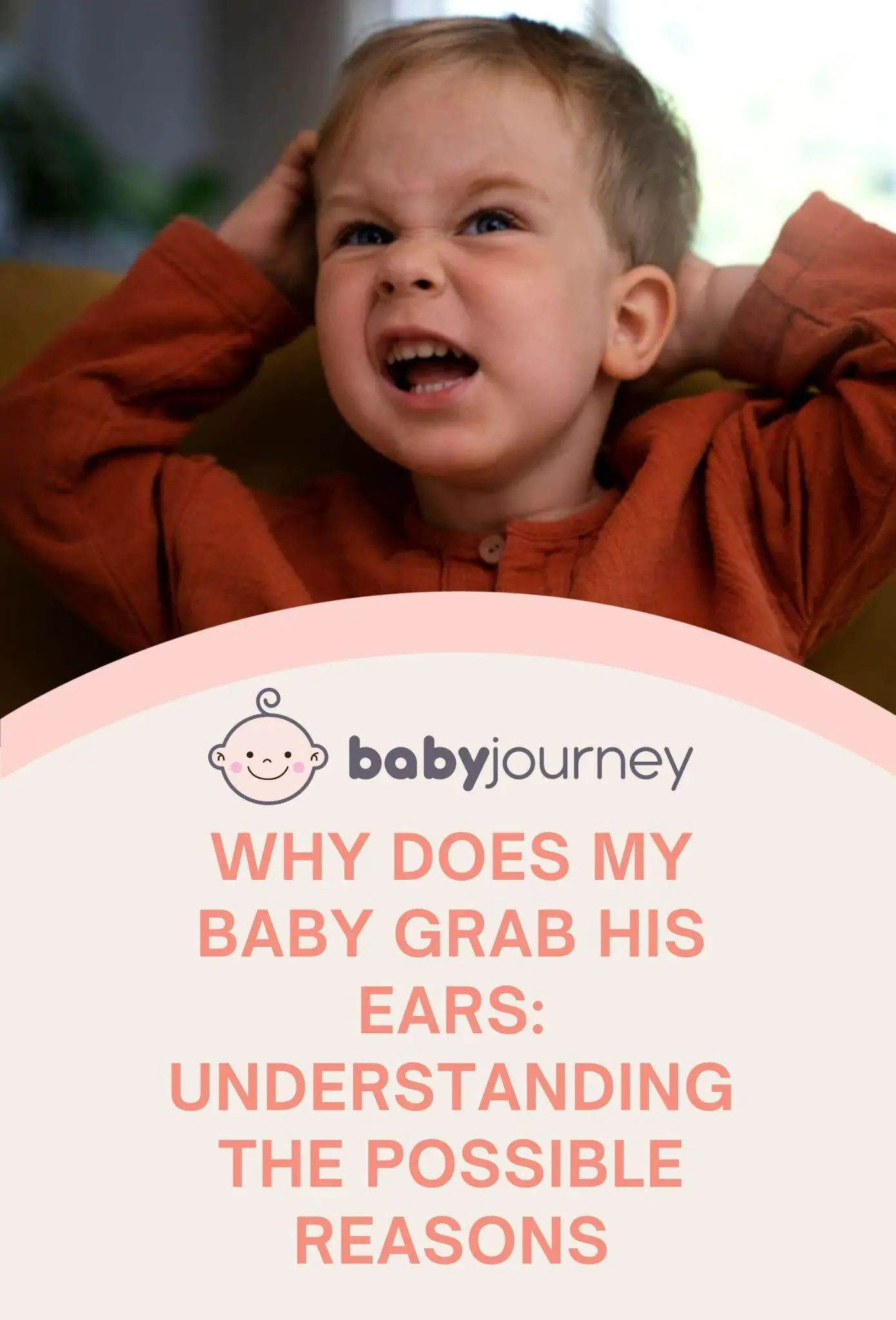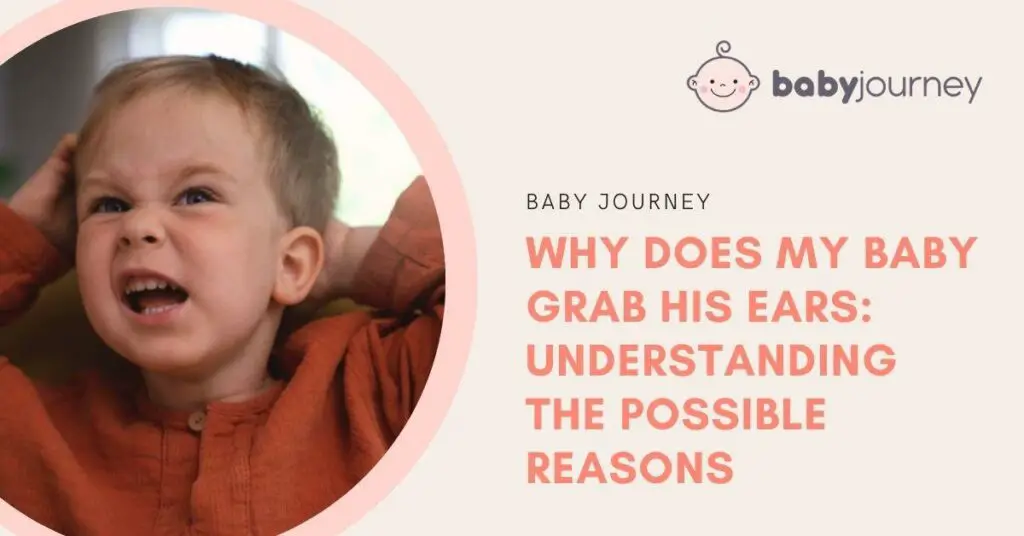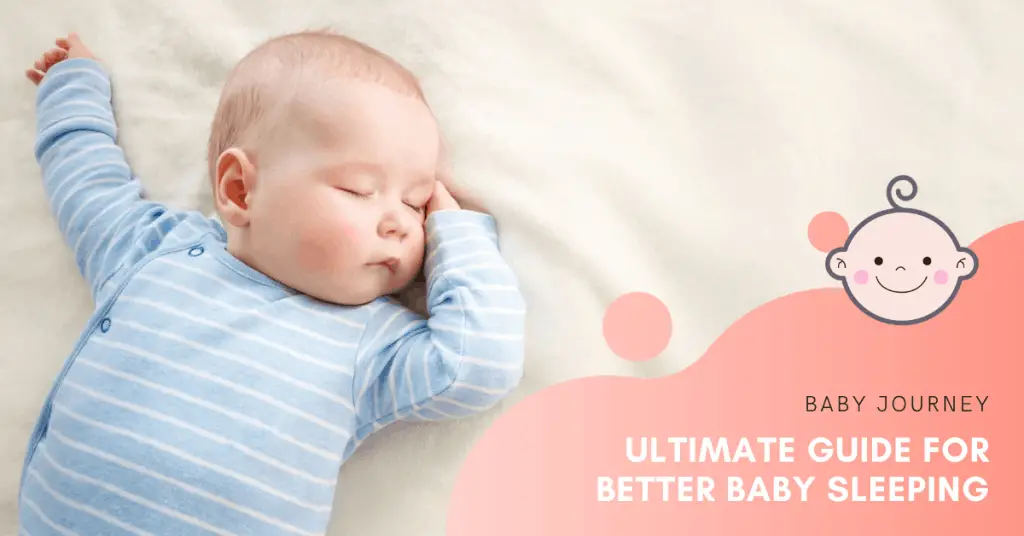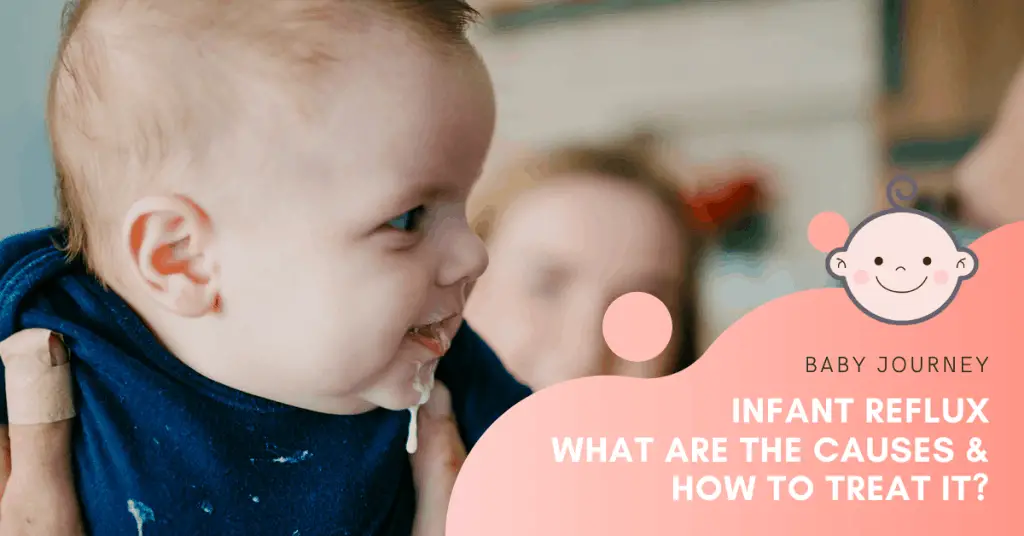Babies can exhibit all sorts of behaviors that may seem strange to parents, especially first-time parents. One common behavior that parents may notice is their baby grabbing their ears. While it can be concerning, there are several reasons why does my baby grab his ears.
One reason babies may grab their ears is simply to explore their body. Babies are constantly learning about the world around them, including their own bodies. This behavior is typically harmless and nothing to worry about.
However, there are other reasons why babies may grab their ears that may require attention. For example, ear infections can cause discomfort and pain, leading babies to grab at their ears. If a parent notices their baby repeatedly grabbing at their ears or showing signs of discomfort, it may be worth a visit to the pediatrician to rule out any underlying issues.
Understanding Baby’s Ear Grabbing
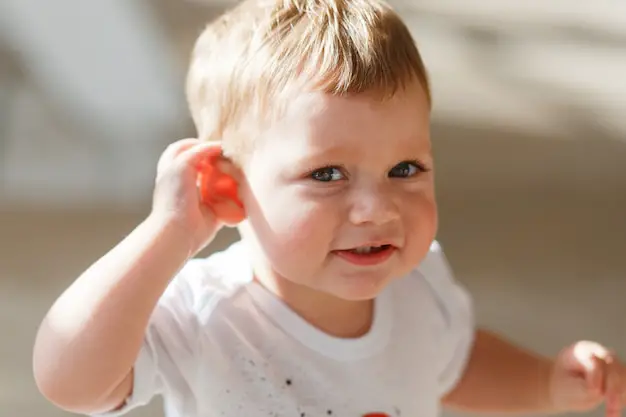
Babies are constantly exploring their environment and learning new things about themselves and the world around them. One common behavior that many parents notice in their babies is ear grabbing. In this section, we will discuss a little one of the reasons why babies grab their ears and what it might mean.
Age and Development
Ear grabbing is a common behavior in babies and toddlers, and younger children, and it can occur at different stages of development. For infants, ear grabbing might be a way to explore their hands and fingers. They might be fascinated by the sensation of touching and pulling on their ears, or they might be trying to figure out how their body works.
As babies get older and develop more advanced motor skills, they might continue to grab their ears out of habit or as a way to self-soothe. It’s important to remember that each baby is different, and some babies might grab their ears more frequently than others.
Self-Soothing and Comfort
Babies might also grab their ears as a way to self-soothe and find comfort. Ear grabbing can be a calming behavior that helps babies relax and feel secure. Some babies might also suck on their fingers or pacifier or cuddle with a favorite blanket or toy as a way to feel comforted.
If your baby is grabbing their ears frequently, it might be a sign that they are feeling stressed or overwhelmed. Pay attention to your baby’s other behaviors and try to identify any triggers that might be causing them to feel upset or anxious.
Exploration and Discovery
Another reason why babies might grab their ears is simply to explore and discover their body. Babies are curious by nature, and they are constantly learning about the world around them. Ear grabbing might be a way for babies to discover their ears and learn more about their body.
If your baby is grabbing their ears frequently, it’s important to monitor their behavior and make sure that they are not experiencing any discomfort or pain. In some cases, ear grabbing might be a sign of an ear infection or other medical issue, so it’s important to talk to your pediatrician if you have any concerns.
In summary, ear grabbing is a common behavior in babies and toddlers that can occur for a variety of reasons. Whether your baby is exploring their body, self-soothing, or discovering their ears, it’s important to pay attention to their behavior and make sure that they are comfortable and healthy.
Possible Health Concerns
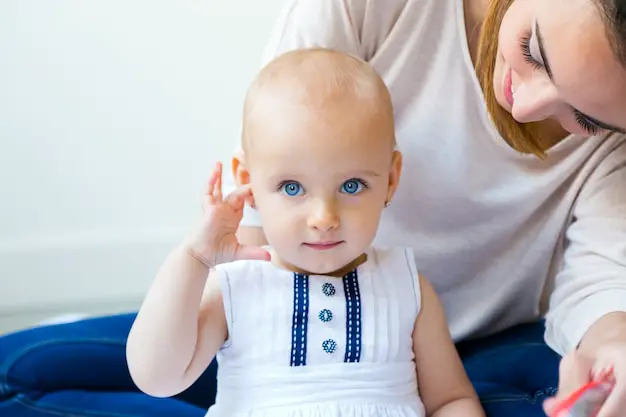
Babies may grab their ears for various reasons, but sometimes it can indicate potential health concerns. Here are some possible health concerns that could cause a baby to grab their ears.
Also read: Microtia Ear
Ear Infections
Ear infections are a common cause of ear pulling in babies. An ear infection can cause pain, discomfort, and itchiness in the ear, which can lead a baby to grab or pull their ears. Symptoms of an ear infection may include ear pain, fever, irritability, crying, vomiting, and diarrhea. If a baby is suspected of having an ear infection, it is important to take them to a pediatrician for diagnosis and treatment. Antibiotics may be prescribed to treat bacterial ear infections.
Teething
Teething is another common cause of ear grabbing in babies. The pressure and discomfort caused by teething can radiate to the ears, causing a baby to grab or pull their ears. Symptoms of teething may include irritability, drooling, flushed cheeks, and teething pain. Giving a baby a teething toy or gently massaging their gums with a clean finger can help alleviate teething discomfort.
Eczema and Itchy Skin
Eczema and other skin conditions can cause itchiness, and a baby may grab their ears to relieve the itchiness. Eczema is a common skin condition that causes red, itchy, and inflamed skin. It can occur on various parts of the body, including the ears. If a baby has eczema or itchy skin, it is important to keep the affected areas clean and moisturized. A pediatrician may prescribe topical creams or ointments to alleviate the symptoms.
Allergies
Allergies can cause itchiness and discomfort, and a baby may grab their ears to relieve the symptoms. Allergic reactions can occur due to various factors, such as food, pollen, dust, or pet dander. If a baby is suspected of having allergies, it is important to identify the allergen and avoid exposure to it. A pediatrician may prescribe antihistamines or other medications to alleviate the symptoms of allergies.
In conclusion, ear grabbing in babies can indicate potential health concerns, such as ear infections, teething, eczema, and allergies. If a baby is suspected of having any of these conditions, or ear tubes, it is important to take them to a pediatrician for diagnosis and treatment.
Identifying and Responding to Symptoms
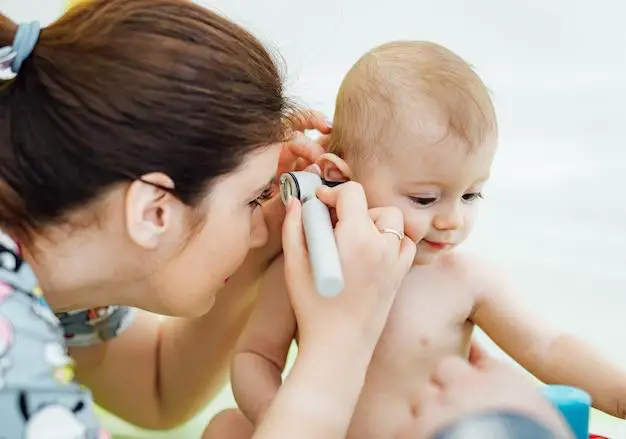
Observing Behavior
If a baby is pulling or tugging on their ears, it can be difficult to know what is causing the behavior. In some cases, it may simply be a way for the baby to self-soothe or a sign of tiredness. However, it can also be a sign of an ear infection or other medical issue.
Parents should observe their baby’s behavior closely to determine if there are any other symptoms present. For example, if the baby is also fussy or has a fever, it may be a sign of an infection. If the baby is scratching at their ears, it may be a sign of irritation or itching.
When to Speak to a Pediatrician
If a baby is pulling or tugging on their ears and there are other symptoms present, it is important to speak to a pediatrician. The doctor can examine the baby or child’s ears to determine if there is an infection or other issue that needs to be treated.
If the baby is otherwise healthy and there are no other symptoms present, parents may choose to take a watchful waiting approach. However, if the behavior persists or becomes more severe, it is important to speak to a pediatrician.
Treatment for ear pulling or tugging will depend on the underlying cause. In some cases, it may simply involve keeping the ears clean and dry. In other cases, medication may be necessary to treat an infection gum irritation or other issue.
Overall, it is important for parents to be aware of their baby and older children’s behavior and to respond appropriately if they notice any symptoms. By taking a proactive approach to ear pulling or tugging, parents can help ensure that their baby stays healthy and happy.
Prevention and Care
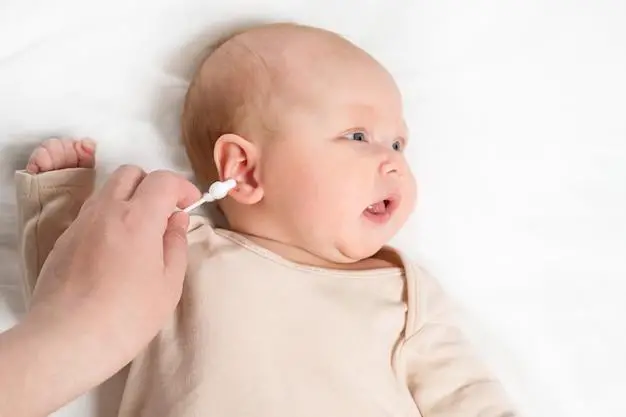
Preventing ear infections and ear discomfort in babies is important for their overall health and well-being. There are several steps parents can take to avoid ear-related issues in their little ones.
Cleaning Baby’s Ears
Cleaning a baby’s ears is an essential part of their hygiene routine. However, it’s important to avoid using cotton swabs or any other object that can damage the eardrum or push ear wax deeper into the ear canal. Instead, parents can use a soft washcloth or tissue to gently clean the outer ear. If there is an excess buildup of ear fluid or wax buildup, parents can use ear drops or visit a pediatrician for professional help.
Safe Toys and Pacifiers
Babies tend to put everything in their mouth, including toys and pacifiers. It’s crucial to ensure that these items are clean and free from any harmful bacteria. Parents can use soap and water to clean toys and pacifiers regularly. They can also avoid buying toys with small parts that can easily break off and become a choking hazard.
Quiet Time and Rest
Babies need plenty of rest and quiet time to prevent ear infections and discomfort. Loud noises can cause fluid buildup in the ear, leading to infections. Parents can create a peaceful environment for their babies to sleep and play in. They can also avoid exposing their babies to loud music or other loud noises.
In conclusion, preventing ear infections and discomfort in babies requires proper care and attention. Parents can ensure their baby’s ears are clean, avoid harmful toys and pacifiers, and provide a peaceful environment for their little ones to rest and play in. By following these simple steps, parents can help their babies avoid ear-related issues and promote their overall health.
Understanding the Impact on Hearing
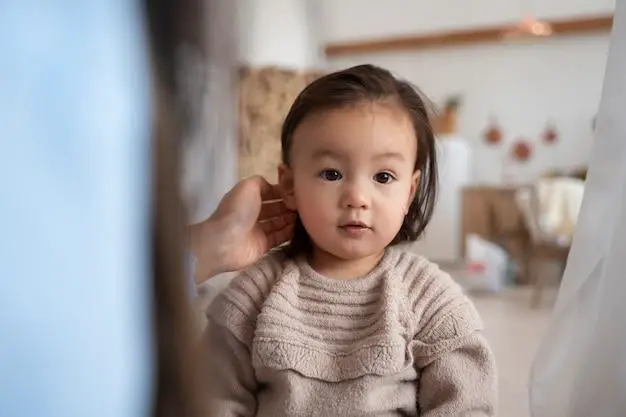
Babies grabbing and pulling their ears out is a common sight, but it can be a cause for concern. It is important to understand the impact of ear pulling or tugging on hearing. This section will discuss how to identify hearing loss and the impact of infections on hearing.
Identifying Hearing Loss
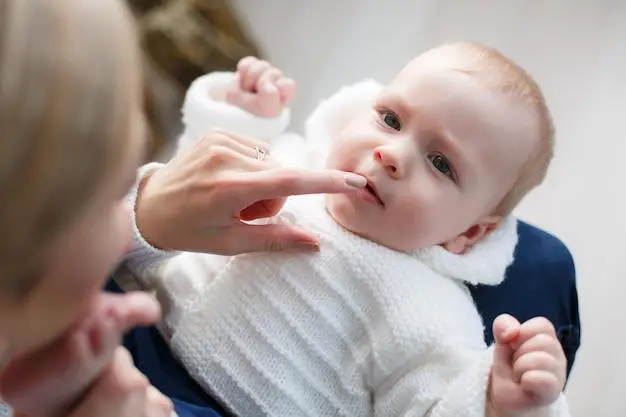
Hearing loss can occur in babies due to various reasons, including genetics, infections, and noise exposure. It is important to identify hearing loss as early as possible to prevent further damage to hearing. Some signs of hearing loss in babies include:
- Not reacting to loud noises
- Not turning their head towards sounds
- Delayed speech
- Pulling or tugging at ears
If a baby is showing any of these signs, it is recommended to consult a doctor for a hearing test. Early detection of hearing loss can help prevent delays in speech and language development.
Impact of Infections on Hearing
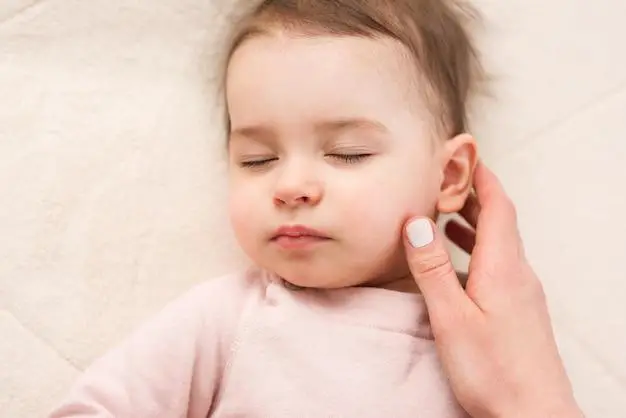
Ear infections are a common cause of ear pulling or tugging in babies. Infections can lead to temporary or permanent hearing loss if left untreated. Infections can cause fluid buildup in the middle ear, which can affect hearing. If left untreated, the fluid can cause damage to the eardrum and hearing nerve.
Gum and jaw infections can also cause ear pain and affect hearing. If a baby is experiencing ear pain along with pulling their teeth or tugging at their ears, it is recommended to consult a doctor for an examination.
In conclusion, it is important to understand the impact of any baby ear infections, pulling or tugging on hearing. If a baby is showing signs of hearing loss or ear pain, it is recommended to consult a doctor for an examination. Early detection and treatment can prevent further damage to hearing.
Conclusion
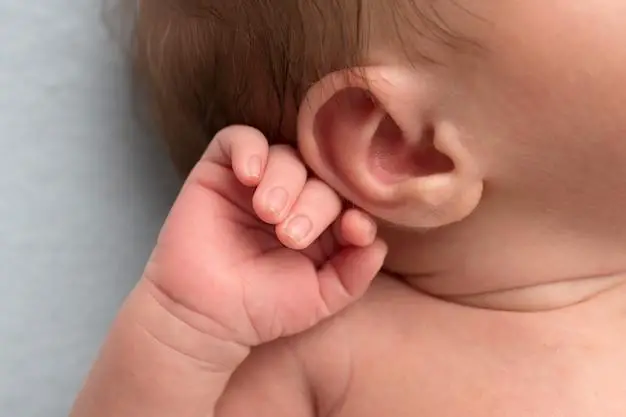
In conclusion, babies grabbing their ears is a common behavior in children that can have various causes. While it is generally not a cause for concern, it is important to keep an eye on the behavior and monitor for any changes or accompanying symptoms.
Some of the common reasons why babies grab their ears include self-soothing, discovering their ears, or feeling itchy. Additionally, it can indicate fatigue or a wax-blocked ear. Parents should take their children to the doctor if they think their child’s ear-pulling is related to an ear infection.
It is important to note that ear pulling can sometimes be a symptom of a more serious condition, such as an ear infection or teething. Therefore, parents should always be vigilant and seek medical attention if they notice baby pulling or any changes in their baby’s behavior or if they have any concerns.
Overall, it is important to remember that babies go through many different phases as they grow and develop, and ear pulling is just one of them. With proper care and attention, parents can help their babies navigate these phases and ensure that they grow up healthy and happy.
Frequently Asked Questions
Why do babies pull their ears when tired?
Babies may pull their ears when they are tired because they are trying to self-soothe. Ear pulling or ear rubbing can be a sign that the baby is trying to calm themselves down and fall asleep. Parents can help their baby by creating a calming bedtime routine and ensuring their baby is getting enough sleep.
What does it mean when a baby rubs their ear and side of head?
When a baby rubs their ear and side of head, it could be a sign of an ear infection. Parents should look for other symptoms such as fever, irritability, and difficulty sleeping. If the baby is showing other signs of an ear infection, they should be taken to a doctor for evaluation and treatment.
Is it normal for babies to scratch their ears at night?
It is completely normal for babies to scratch their ears at night, especially if they have dry skin or cradle cap. However, if the baby is scratching their ears excessively or showing signs of discomfort, it could be a sign of an underlying issue such as an ear infection or eczema. Parents should monitor their baby and consult with a doctor if they have concerns.
What is the meaning behind ear tugging in babies?
Ear tugging in babies can be a sign of discomfort or pain in the ear. This could be due to an ear infection or other issue. Parents should look for other symptoms such as fever, irritability, and difficulty sleeping. If the baby is showing other signs of an ear infection, they should be taken to a doctor for evaluation and treatment.
Why do babies cover their ears with their hands?
Babies may cover their ears with their hands when they are overstimulated or trying to block out noise. This can be a sign that the baby is feeling overwhelmed and needs a break. Parents can help their baby by creating a calm and quiet environment and providing a safe space for the baby to relax.
Can touching ears be a sign of autism in babies?
Touching ears alone is not a sign of autism in babies. However, if the baby is showing other signs of developmental delay or autism, such as lack of eye contact or delayed speech, parents should consult with a doctor for evaluation and treatment. It is important to remember that every baby develops at their own pace and may have different milestones.
